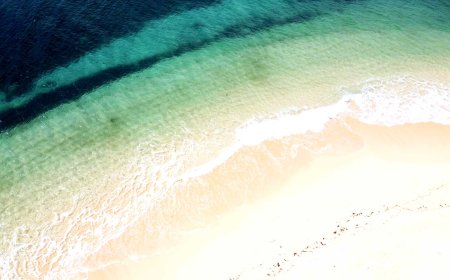Steadfast for Sovereignty: Philippines' Peaceful Resolve
In the face of rising tensions in the West Philippine Sea, the Philippines stands firm in its resolve to protect its sovereign rights. While praying for peace, the nation remains committed to defending its territorial integrity.

A Legacy of Resistance and Resilience
The Philippines has a history rich with stories of struggle, resilience, and triumph. Colonized, abused, and exploited by foreign powers for centuries, the Filipino people have continuously fought for their freedom and sovereignty. Today, as the nation prays for peace, it also stands firm in its commitment to preserve its hard-won independence, echoing the resolute words of President Ferdinand Marcos Jr.: "The Philippines cannot yield, the Philippines cannot waiver."
 President Ferdinand Marcos Jr.'s third State of the Nation Address on July 22, 2024. This image is owned by Radio Television Malacañang. It was used for informational purposes only. No infringement intended.
President Ferdinand Marcos Jr.'s third State of the Nation Address on July 22, 2024. This image is owned by Radio Television Malacañang. It was used for informational purposes only. No infringement intended.
The Strategic Importance of the West Philippine Sea
The West Philippine Sea, part of the larger South China Sea, is a region of immense strategic and economic importance. Rich in natural resources, it holds significant oil and natural gas reserves, along with abundant fishing grounds that are vital for the livelihoods of millions of Filipinos. Additionally, it is one of the world's busiest maritime routes, crucial for international trade and economic stability.
The Philippines' claim to the West Philippine Sea is based on historical and legal grounds, recognized by the United Nations Convention on the Law of the Sea (UNCLOS). In 2016, the Permanent Court of Arbitration in The Hague ruled in favor of the Philippines, invalidating China's extensive claims based on its so-called "nine-dash line." Despite this legal victory, the challenge of enforcing this ruling remains formidable.
 Unofficial map of the Spratlys (Kalayaan Island Group; KIG) West Philippine Sea.
Unofficial map of the Spratlys (Kalayaan Island Group; KIG) West Philippine Sea.
The Struggle for Sovereignty
While the Philippines seeks peaceful resolutions, it cannot yield or waver in its assertion of sovereign rights over the West Philippine Sea. The region has become a flashpoint of geopolitical tension, with China asserting its dominance through the construction of artificial islands and military installations. These actions threaten not only the Philippines' territorial integrity but also regional stability and international maritime law.
The Philippine government has sought diplomatic avenues to address the dispute. However, diplomacy alone has often proven insufficient in the face of aggressive posturing. As a result, the Philippines has also strengthened its defense capabilities, modernizing its navy and coast guard to better patrol and protect its territorial waters. This dual approach of diplomacy backed by defense readiness underscores the nation's commitment to safeguarding its sovereignty.
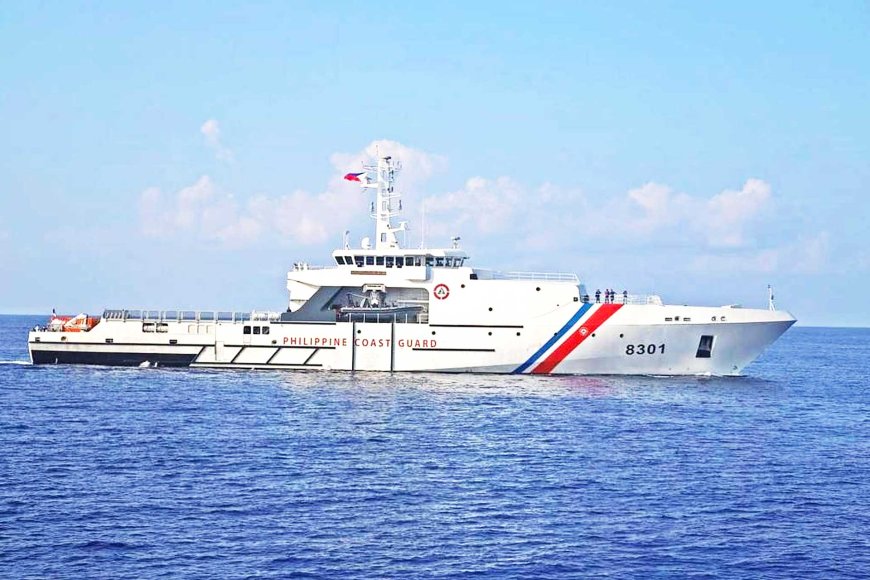 The Philippine Coast Guard's BRP Gabriela Silang (PS-350). This image is owned by Philippine Coast Guard. It was used for informational purposes only. No infringement intended.
The Philippine Coast Guard's BRP Gabriela Silang (PS-350). This image is owned by Philippine Coast Guard. It was used for informational purposes only. No infringement intended.
International Support and Regional Cooperation
The Philippines has not stood alone in its struggle. The international community, particularly allies like the United States, Japan, and Australia, has expressed support for the Philippines' stance and the rule of international law. Joint military exercises, strategic partnerships, and defense agreements have bolstered the Philippines' position, ensuring it has the means to defend its interests.
Regional cooperation through the Association of Southeast Asian Nations (ASEAN) has also been pivotal. ASEAN's collective voice, calling for the peaceful resolution of disputes and adherence to international law, adds weight to the Philippines' efforts. However, the complexity of regional politics means that ASEAN's consensus-based approach can sometimes dilute the urgency of the issue.
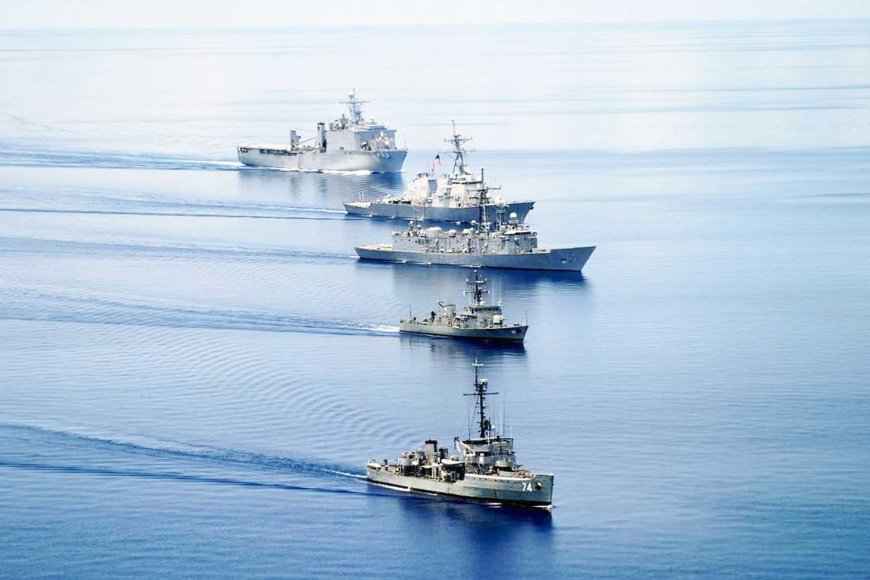 A combined U.S. Navy and Philippine Navy task group. This image is owned by U.S. Navy photo by Aviation Structural Mechanic 1st Class William Contreras. It was used for informational purposes only. No infringement intended.
A combined U.S. Navy and Philippine Navy task group. This image is owned by U.S. Navy photo by Aviation Structural Mechanic 1st Class William Contreras. It was used for informational purposes only. No infringement intended.
The Way Forward
Navigating the turbulent waters of the West Philippine Sea requires a delicate balance of assertiveness and diplomacy. The Philippines must continue to build on its legal and moral high ground while remaining vigilant against any encroachments. Strengthening alliances, enhancing defense capabilities, and fostering regional cooperation are essential components of this strategy.
Education and awareness within the Philippines are equally important. The younger generation must understand the historical context and current realities of the West Philippine Sea dispute. Promoting national unity and a sense of collective responsibility will ensure that the nation remains steadfast in its resolve.
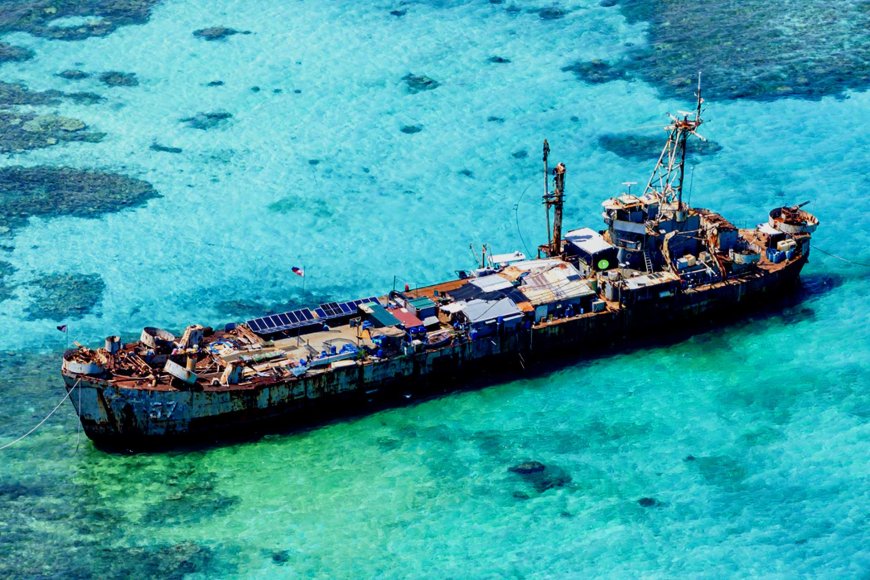 The grounded BRP Sierra Madre that serves as a naval outpost on Ayungin Shoal since 1999.
The grounded BRP Sierra Madre that serves as a naval outpost on Ayungin Shoal since 1999.
A Prayer for Peace with Unyielding Resolve
The Philippines' prayer for peace is earnest and heartfelt, reflecting a nation's deep desire for harmony and stability. However, this prayer does not equate to passivity. The Philippines cannot yield or waiver in its defense of sovereign rights in the West Philippine Sea. As it prays for peace, it stands firm, ready to protect its territory and uphold the principles of international law. In this unwavering stance, the true spirit of the Filipino people shines through – resilient, determined, and hopeful for a peaceful future.
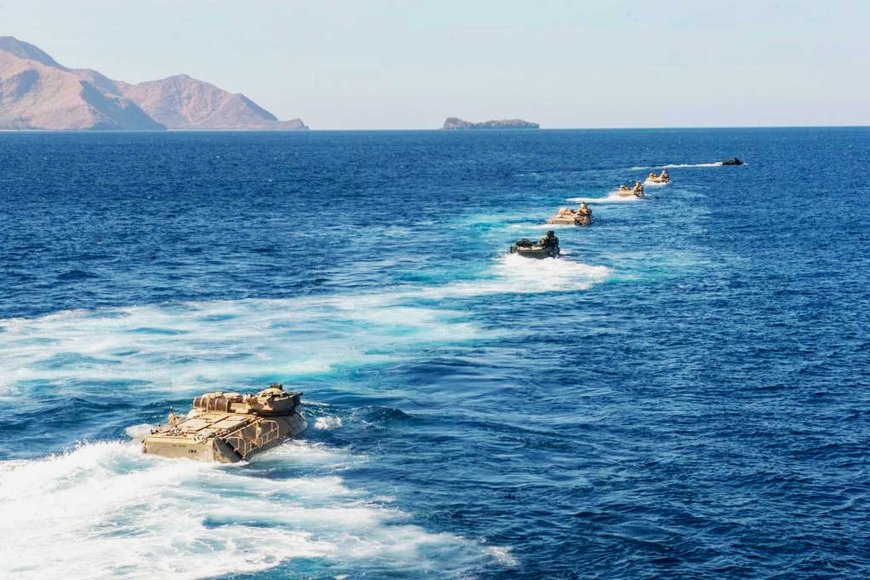 Amphibious assault vehicles during Balikatan exercises in the West Philippine Sea.
Amphibious assault vehicles during Balikatan exercises in the West Philippine Sea.
Find Cheap Flight Tickets to any Destinations in Japan and the Philippines
Nipino.com is committed to providing you with accurate and genuine content. Let us know your opinion by clicking HERE.



















































